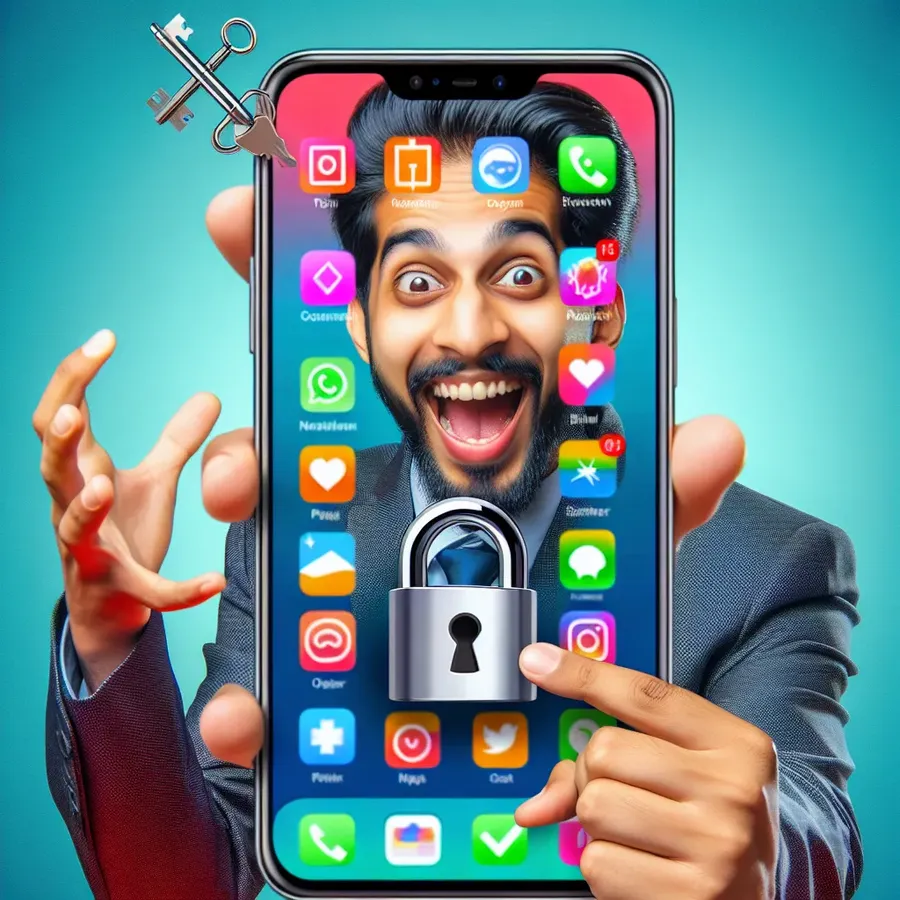Unlocking the Truth About Jailbroken Phones
Discover what does it mean when your phone is jailbroken and the risks and benefits of this process.

In a world where technology is as essential as air, the concept of jailbreaking might sound rebellious — and it kind of is. Jailbreaking your phone is like taking off the training wheels, giving you unrestricted access to its operating system. But what does it really mean when your phone is jailbroken, and is it worth the risk? Let’s delve into the world of jailbreaking and uncover its mysteries.
The Basics of Jailbreaking
What Is Jailbreaking?
Jailbreaking refers to the process of removing software restrictions imposed by the manufacturer, typically on Apple devices like iPhones. This process allows users to gain root access to the operating system, enabling a plethora of customizations and the installation of apps not available on the official App Store.
Why Do People Jailbreak Their Phones?
The allure of jailbreaking often lies in the freedom it provides. From customizing the user interface to bypassing carrier restrictions, jailbreaking opens a treasure trove of possibilities. But with great power comes great responsibility, and perhaps a few pitfalls.
The Good, The Bad, and The Ugly
Benefits of Jailbreaking
- Customization: Imagine being able to change every aspect of your phone’s appearance and functionality. Jailbreaking allows for the removal of manufacturer-imposed limitations, letting you personalize your device to your heart’s content.
- Access to Third-Party Apps: With jailbreaking, you’re no longer confined to the App Store. You can explore a world of apps that offer unique features and functionalities.
- Enhanced Device Control: Users can unlock advanced features, like tethering options and file system access, which are typically restricted.
Risks of Jailbreaking
- Security Vulnerabilities: By bypassing built-in security features, a jailbroken phone becomes more susceptible to malware and hacking attempts.
- Voided Warranty: Once you jailbreak your device, the manufacturer’s warranty often becomes null and void. This means any hardware issues will have to be fixed out-of-pocket.
- System Instability: Jailbreaking can lead to an unstable operating system, causing apps to crash and potentially bricking your device.
How to Identify a Jailbroken Phone
Curious if your phone has been jailbroken without your knowledge? Here are some telltale signs:
- Presence of Cydia: This app is a common indicator of a jailbroken device. If it’s installed, your phone is likely jailbroken.
- Strange Behavior: Unexpected crashes, poor battery life, or unfamiliar apps appearing can be red flags.
- Security Warnings: Some apps, like banking applications, will alert you if they detect a jailbreak.
Legal and Ethical Considerations
Is Jailbreaking Legal?
In many countries, jailbreaking is legal, but it often voids the device’s warranty. The DMCA in the United States permits jailbreaking for smartphones, but other devices may not be covered under this exemption.
Ethical Implications
While jailbreaking offers freedom, it also raises ethical questions. Accessing pirated content or bypassing software restrictions can lead to legal troubles and ethical dilemmas.
Forest VPN: Your Security Net
While the concept of jailbreaking offers tantalizing freedom, security should never be compromised. Forest VPN provides a reliable way to protect your data, even if you’ve decided to jailbreak your device. With Forest VPN, you can mask your IP, encrypt your data, and browse with peace of mind.
Testimonials: Real Experiences
“Jailbreaking my phone opened up a new world of customization, but it wasn’t until I started using Forest VPN that I truly felt secure. It’s a game-changer!” — Tom, Tech Enthusiast
“I love the freedom jailbreaking gives me, but I rely on Forest VPN to keep my data safe. It’s essential!” — Sarah, Digital Nomad
Tips for Safe Jailbreaking
- Research Thoroughly: Understand the risks and benefits before proceeding.
- Use Reputable Sources: Only download apps and tweaks from trusted sources.
- Back Up Your Data: Always back up your device before jailbreaking.
Conclusion
Jailbreaking can transform your phone into a powerhouse of customization and control, but it’s not without its risks. Whether you decide to jailbreak or not, ensuring your data is protected with a tool like Forest VPN is crucial. Stay informed, stay safe, and enjoy the freedom your device can offer.
What Does It Mean When Your Phone Is Jailbroken?
When your phone is jailbroken, it means that the manufacturer-imposed restrictions on the device’s operating system have been removed, granting you root access. This allows for:
- Customization: Change the appearance and features of your device.
- Third-party Apps: Install apps not available on the official app store.
- Carrier Unlocking: Switch carriers without restrictions.
Risks of Jailbreaking
- Security Vulnerabilities: Increased exposure to malware.
- Warranty Void: Loss of manufacturer support.
- System Instability: Higher chances of crashes.
To protect your device post-jailbreak, consider using Forest VPN for enhanced security and privacy. Stay safe while enjoying your freedom!
FAQs about Jailbreaking: Is It Safe?
What is jailbreaking?
Jailbreaking is the process of removing software restrictions imposed by manufacturers on devices, particularly iPhones, allowing users to gain root access to the operating system and install unauthorized apps.
Is jailbreaking safe?
No, jailbreaking is not considered safe as it exposes your device to security vulnerabilities, making it susceptible to malware and hacking attempts. It also voids the device’s warranty and may lead to system instability.
What are the benefits of jailbreaking my phone?
Jailbreaking offers benefits such as extensive device customization, access to third-party apps not available on the official App Store, and the ability to unlock carrier restrictions, giving you more control over your device.
Can I reverse a jailbreak if I no longer want it?
Yes, you can reverse a jailbreak by restoring your device to its original manufacturer settings. This process will wipe all data, so it’s recommended to back up your information beforehand.
Is jailbreaking legal?
In many countries, jailbreaking is legal, including in the United States under the DMCA for smartphones. However, it often voids the manufacturer’s warranty, so users should be aware of the potential legal and ethical implications.
